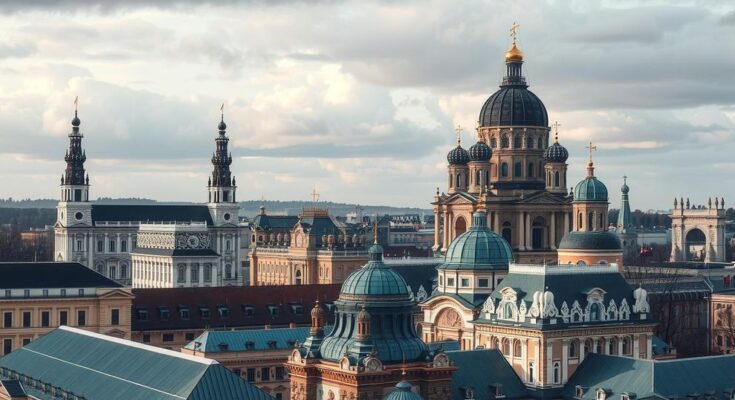North Korean officials have traveled to Moscow amid ongoing Russia-Ukraine peace negotiations between the U.S. and Russia. This diplomatic move suggests that Pyongyang may seek compensation for military support provided to Moscow. Meetings have occurred between senior officials, with discussions surrounding political contacts and North Korean troop deployments. There are concerns that ceasefire agreements could limit North Korea’s access to advanced military technology from Russia.
In recent developments, North Korean officials have travelled to Moscow amid ongoing peace negotiations between U.S. President Donald Trump and Russian President Vladimir Putin regarding the Russia-Ukraine conflict. This diplomatic outreach appears to position Pyongyang to request compensation for its military support to Russia throughout the war, including weapons and troop deployments.
A delegation led by Minister of External Economic Relations, Yun Jong-ho, departed for Russia, as reported by North Korea’s state-run publication, Rodong Sinmun. Although the specific objectives remain undisclosed, experts believe the visit aligns with the ceasefire roadmap being formulated by Trump and Putin. During a phone call, Putin agreed to pause strikes on Ukrainian energy infrastructure, signaling a commitment to peace talks.
Additionally, a separate delegation from North Korea’s Ministry of Public Health, headed by Vice Minister Jon Sol-ryong, arrived in Russia. This visit coincides with North Korea’s ongoing struggles with underfunded healthcare, exacerbated by international sanctions. Despite the completion of the Pyongyang General Hospital, a key project initiated by Kim Jong-un, its opening has been delayed, indicating possible logistical challenges for medical supply acquisitions.
Meetings were also held between Russian Deputy Foreign Minister Andrey Rudenko and North Korean officials, including Foreign Minister Choe Son-hui. Discussions addressed the potential for high-level political contacts between Kim and Putin. Furthermore, North Korea has received an invitation for its troops to participate in Russia’s upcoming Victory Day celebrations, sparking speculation about a potential visit from Kim.
Despite strengthened relations between North Korea and Russia, obstacles could arise. The ceasefire negotiations led by Trump and Putin include provisions on strategic weapons non-proliferation, which may limit North Korea’s access to advanced military technology from Russia. While Pyongyang seeks assistance in achieving reconnaissance satellite capabilities and SSBN technology, Russia’s current arms control negotiations with Washington complicate these ambitions.
Moreover, North Korean forces have been crucial to Russia’s operations in recent military successes, notably in recapturing the Kursk region from Ukrainian control. North Korean infantry units, deployed in October 2024, played a significant role, demonstrating operational effectiveness alongside Russian forces. Reports suggest their enhanced battlefield strategies have contributed to successes in capturing key logistics sites.
Ukrainian military personnel have praised the combat capabilities of North Korean troops, and observations from within their ranks reveal concerns about their own forces’ fatigue. One serviceman noted the superior detail in North Korean battle maps, likening their precision to a bygone era of military structuring, indicative of extensive training and preparation.
The recent travel of North Korean officials to Moscow underscores Pyongyang’s efforts to consolidate its support role in the ongoing Russia-Ukraine conflict while seeking potential compensation. The meetings signify the delicate balance of interests between North Korea and Russia, especially amid evolving peace negotiations led by Trump and Putin. As both nations navigate their strategic relationships, North Korea’s military contributions and aspirations present complex challenges, particularly in the realm of arms control and military technology sharing.
Original Source: koreajoongangdaily.joins.com




